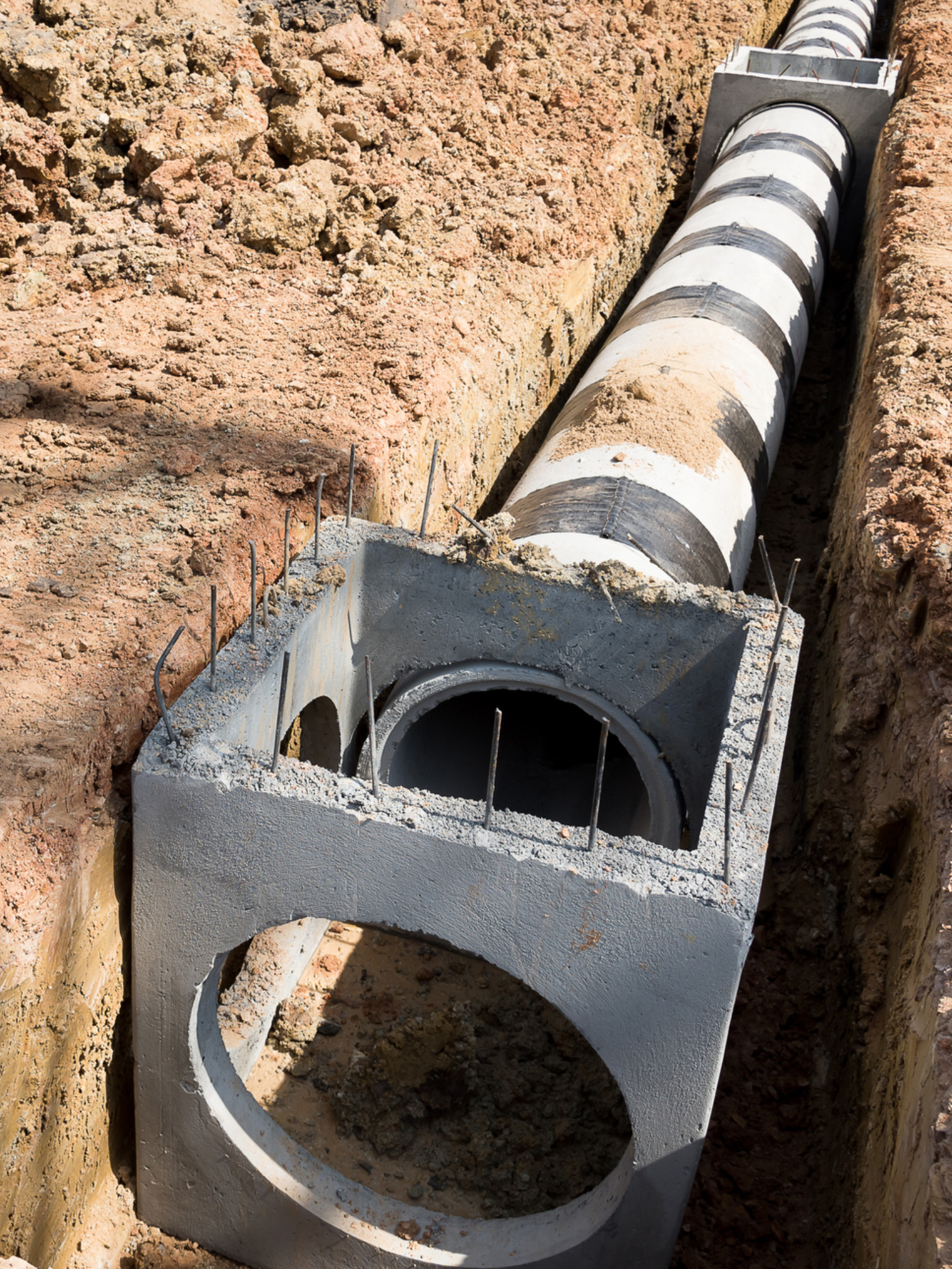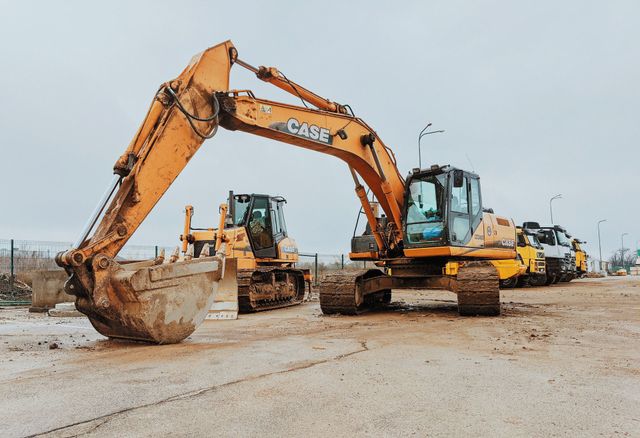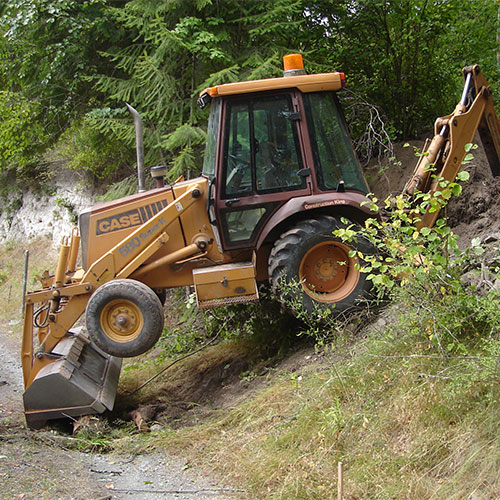Septic Ohio - Comprehensive Septic Tank Services in Ohio
Wiki Article
Comprehensive Excavation Techniques: Grasping the Principles for Success
In the realm of construction and civil design, the value of reliable excavation approaches can not be overstated. The cautious planning, accurate implementation, and thorough interest to information needed in excavation projects require a detailed technique that includes various fundamental elements. From first dirt evaluation to the execution of precaution and routine progression monitoring, mastering these core components is necessary for achieving success in any type of excavation endeavor. The real mastery lies not just in understanding these basics but in seamlessly incorporating them to browse the complexities of excavation jobs with finesse.Comprehending Excavation Job Preparation

The preliminary phase of any type of excavation job is the preparation phase, where critical choices are made that can substantially influence the result of the task. Understanding the task range, spending plan, and timeline constraints is critical for producing an extensive excavation strategy that guarantees the project's success.
One key facet of excavation task planning is the growth of an in-depth timeline that lays out the series of landmarks, tasks, and due dates. By very carefully taking into consideration all these factors throughout the preparation stage, excavation jobs can be implemented successfully and properly, leading to effective outcomes - dump truck companies in ohio.
Soil Analysis and Website Examination
Performing detailed dirt evaluation and site analysis is a crucial action in the prep work phase of any type of excavation project. Soil analysis includes establishing the make-up, framework, and residential properties of the soil at the excavation site. This info is essential for recognizing the dirt's bearing capability, dampness content, and potential for erosion, which are crucial consider establishing the excavation methods and equipment needed for the job.Website evaluation goes beyond soil analysis and incorporates a broader evaluation of the overall website problems. This examination includes identifying any prospective threats, such as below ground utilities, environmental concerns, or unpredictable surface, that can impact the excavation process. By extensively examining the site, project managers can develop effective excavation approaches that prioritize safety, performance, and ecological protection.
Utilizing sophisticated technologies like ground-penetrating radar, dirt tasting, and drone studies can enhance the precision and effectiveness of dirt analysis and site assessment. Spending time and sources in these initial steps can inevitably conserve time and protect against expensive delays or issues throughout the excavation procedure.
Equipment Option and Application
Effective excavation projects depend heavily on calculated tools choice and usage to ensure optimal performance and efficiency. Selecting the right tools for the job is critical in optimizing efficiency and decreasing downtime. Elements such as the kind of dirt, depth of excavation, and task extent play a substantial role in figuring out one of the most appropriate tools for the task handy.
In enhancement to selecting the appropriate equipment, correct utilization is vital to task success. Operators has to be educated to handle the tools securely and successfully - lancaster trenching. Normal upkeep checks and prompt repair services assist stop break downs and ensure consistent efficiency throughout the project
Safety Measures and Rules Conformity
In the realm of excavation jobs, focusing on precaution and conformity with guidelines is paramount to guaranteeing a safe and secure and lawfully sound operational setting. Safety and security procedures encompass a variety of techniques, including performing detailed site assessments, implementing proper signage and obstacles, and giving ample safety and security training for all employees dump truck companies in ohio associated with the excavation procedure. Adherence to laws, such as OSHA demands in the USA, ensures that the excavation job satisfies the needed standards to protect workers, bystanders, and the surrounding atmosphere.
Monitoring Development and Adjusting Techniques
Exactly how can predict managers effectively track the advancement of excavation tasks and adapt their methods appropriately to enhance outcomes? Surveillance progression is essential for guaranteeing that excavation jobs stay on track and meet target dates. Project supervisors can utilize different tools and strategies to track progression, such as day-to-day report card, normal website assessments, and advanced monitoring modern technologies like drones and GPS tracking systems. By continuously checking the task's advancement, supervisors can recognize any type of potential hold-ups or issues early on and take positive measures to resolve them.
Final Thought
Finally, understanding the basics of comprehensive excavation approaches is vital for the success of any task. By understanding task planning, assessing soil and website conditions, picking suitable tools, following safety and security guidelines, and monitoring development, task supervisors can make sure a effective and smooth excavation procedure. Executing these approaches will cause effective outcomes and lessen potential dangers or troubles throughout the excavation project.
The preliminary phase of any type of excavation task is the preparation phase, where crucial choices are made that can substantially influence the end result of the job. Understanding the project spending plan, timeline, and scope restraints is vital for producing a thorough excavation strategy that ensures the project's success.
Exactly how can forecast managers successfully track the innovation of excavation jobs and adjust their methods as necessary to maximize end results? By very closely keeping an eye on development and being eager to adapt strategies, job managers can boost the general success of excavation tasks.
By comprehending task preparation, evaluating soil and site problems, choosing appropriate devices, complying with safety and security regulations, and monitoring progress, project managers can make certain a smooth and reliable excavation procedure.
Report this wiki page